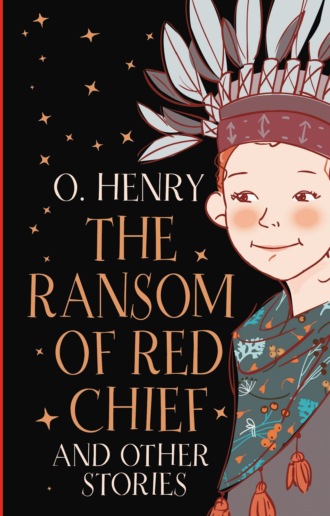
Полная версия
«The Ransom of Red Chief» and Other Stories / «Вождь краснокожих» и другие рассказы
“The law and the statutes,” said he, “air silent on the subjeck of divo'ce as fur as the jurisdiction of this co't air concerned. But, accordin' to equity and the Constitution and the golden rule, it's a bad barg'in that can't run both ways. If a justice of the peace can marry a couple, it's plain that he is bound to be able to divo'ce 'em. This here office will issue a decree of divo'ce and abide by the decision of the Supreme Co't to hold it good.”
Ransie Bilbro drew a small tobacco-bag from his trousers pocket. Out of this he shook upon the table a five-dollar note. “Sold a b'arskin and two foxes fur that,” he remarked. “It's all the money we got.”
“The regular price of a divo'ce in this co't,” said the Justice, “air five dollars.” He stuffed the bill into the pocket of his homespun vest with a deceptive air of indifference. With much bodily toil and mental travail he wrote the decree upon half a sheet of foolscap, and then copied it upon the other. Ransie Bilbro and his wife listened to his reading of the document that was to give them freedom:
“Know all men by these presents that Ransie Bilbro and his wife, Ariela Bilbro, this day personally appeared before me and promises that hereinafter they will neither love, honour, nor obey each other, neither for better nor worse, being of sound mind and body, and accept summons for divorce according to the peace and dignity of the State. Herein fail not, so help you God. Benaja Widdup, justice of the peace in and for the county of Piedmont, State of Tennessee.”
The Justice was about to hand one of the documents to Ransie. The voice of Ariela delayed the transfer. Both men looked at her. Their dull masculinity was confronted by something sudden and unexpected in the woman.
“Judge, don't you give him that air paper yit. 'Tain't all settled, nohow. I got to have my rights first. I got to have my ali-money. 'Tain't no kind of a way to do fur a man to divo'ce his wife 'thout her havin' a cent fur to do with. I'm a-layin' off to be a-goin' up to brother Ed's up on Hogback Mount'in. I'm bound fur to hev a pa'r of shoes and some snuff and things besides. Ef Rance kin affo'd a divo'ce, let him pay me ali-money.”
Ransie Bilbro was stricken to dumb perplexity. There had been no previous hint of alimony. Women were always bringing up startling and unlooked-for issues.
Justice Benaja Widdup felt that the point demanded judicial decision. The authorities were also silent on the subject of alimony. But the woman's feet were bare. The trail to Hogback Mountain was steep and flinty.
“Ariela Bilbro,” he asked, in official tones, “how much did you 'low would be good and sufficient ali-money in the case befo' the co't.”
“I 'lowed,” she answered, “fur the shoes and all, to say five dollars. That ain't much fur ali-money, but I reckon that'll git me to up brother Ed's.”
“The amount,” said the Justice, “air not onreasonable. Ransie Bilbro, you air ordered by the co't to pay the plaintiff the sum of five dollars befo' the decree of divo'ce air issued.”
“I hain't no mo' money,” breathed Ransie, heavily. “I done paid you all I had.”
“Otherwise,” said the Justice, looking severely over his spectacles, “you air in contempt of co't.”
“I reckon if you gimme till tomorrow,” pleaded the husband, “I mout be able to rake or scrape it up somewhars. I never looked for to be a-payin' no ali-money.”
“The case air adjourned,” said Benaja Widdup, “till tomorrow, when you-all will present yo'selves and obey the order of the co't. Followin' of which the decrees of divo'ce will be delivered.” He sat down in the door and began to loosen a shoestring.
“We mout as well go down to Uncle Ziah's,” decided Ransie, “and spend the night.” He climbed into the cart on one side, and Ariela climbed in on the other. Obeying the flap of his rope, the little red bull slowly came around on a tack, and the cart crawled away in the nimbus arising from its wheels.
Justice-of-the-peace Benaja Widdup smoked his elder-stem pipe. Late in the afternoon he got his weekly paper, and read it until the twilight dimmed its lines. Then he lit the tallow candle on his table, and read until the moon rose, marking the time for supper. He lived in the double log cabin on the slope near the girdled poplar. Going home to supper he crossed a little branch darkened by a laurel thicket. The dark figure of a man stepped from the laurels and pointed a rifle at his breast. His hat was pulled down low, and something covered most of his face.
“I want yo' money,” said the figure, “'thout any talk. I'm gettin' nervous, and my finger's a-wabblin' on this here trigger.”
“I've only got f-f-five dollars,” said the Justice, producing it from his vest pocket.
“Roll it up,” came the order, “and stick it in the end of this here gun-bar'l.”
The bill was crisp and new. Even fingers that were clumsy and trembling found little difficulty in making a spill of it and inserting it (this with less ease) into the muzzle of the rifle.
“Now I reckon you kin be goin' along,” said the robber.
The Justice lingered not on his way.
The next day came the little red bull, drawing the cart to the office door. Justice Benaja Widdup had his shoes on, for he was expecting the visit. In his presence Ransie Bilbro handed to his wife a five-dollar bill. The official's eye sharply viewed it. It seemed to curl up as though it had been rolled and inserted into the end of a gun-barrel. But the Justice refrained from comment. It is true that other bills might be inclined to curl. He handed each one a decree of divorce. Each stood awkwardly silent, slowly folding the guarantee of freedom. The woman cast a shy glance full of constraint at Ransie.
“I reckon you'll be goin' back up to the cabin,” she said, along 'ith the bull-cart. There's bread in the tin box settin' on the shelf. I put the bacon in the b'ilin'-pot to keep the hounds from gittin' it. Don't forget to wind the clock to-night.”
“You air a-goin' to your brother Ed's?” asked Ransie, with fine unconcern.
“I was 'lowin' to get along up thar afore night. I ain't sayin' as they'll pester theyselves any to make me welcome, but I hain't nowhar else fur to go. It's a right smart ways, and I reckon I better be goin'. I'll be a-sayin' good-bye, Ranse-that is, if you keer fur to say so.”
“I don't know as anybody's a hound dog,” said Ransie, in a martyr's voice, “fur to not want to say good-bye-'less you air so anxious to git away that you don't want me to say it.”
Ariela was silent. She folded the five-dollar bill and her decree carefully, and placed them in the bosom of her dress. Benaja Widdup watched the money disappear with mournful eyes behind his spectacles.
And then with his next words he achieved rank (as his thoughts ran) with either the great crowd of the world's sympathizers or the little crowd of its great financiers.
“Be kind o' lonesome in the old cabin to-night, Ranse,” he said.
Ransie Bilbro stared out at the Cumberlands, clear blue now in the sunlight. He did not look at Ariela.
“I 'low it might be lonesome,” he said; “but when folks gits mad and wants a divo'ce, you can't make folks stay.”
“There's others wanted a divo'ce,” said Ariela, speaking to the wooden stool. “Besides, nobody don't want nobody to stay.”
“Nobody never said they didn't.”
“Nobody never said they did. I reckon I better start on now to brother Ed's.”
“Nobody can't wind that old clock.”
“Want me to go back along 'ith you in the cart and wind it fur you, Ranse?”
The mountaineer's countenance was proof against emotion. But he reached out a big hand and enclosed Ariela's thin brown one. Her soul peeped out once through her impassive face, hallowing it.
“Them hounds shan't pester you no more,” said Ransie. “I reckon I been mean and low down. You wind that clock, Ariela.”
“My heart hit's in that cabin, Ranse,” she whispered, “along 'ith you. I ai'nt a-goin' to git mad no more. Le's be startin', Ranse, so's we kin git home by sundown.”
Justice-of-the-peace Benaja Widdup interposed as they started for the door, forgetting his presence.
“In the name of the State of Tennessee,” he said, “I forbid you-all to be a-defyin' of its laws and statutes. This co't is mo' than willin' and full of joy to see the clouds of discord and misunderstandin' rollin' away from two lovin' hearts, but it air the duty of the co't to p'eserve the morals and integrity of the State. The co't reminds you that you air no longer man and wife, but air divo'ced by regular decree, and as such air not entitled to the benefits and 'purtenances of the mattermonal estate.”
Ariela caught Ransie's arm. Did those words mean that she must lose him now when they had just learned the lesson of life?
“But the co't air prepared,” went on the Justice, “fur to remove the disabilities set up by the decree of divo'ce. The co't air on hand to perform the solemn ceremony of marri'ge, thus fixin' things up and enablin' the parties in the case to resume the honour'ble and elevatin' state of mattermony which they desires. The fee fur performin' said ceremony will be, in this case, to wit, five dollars.”
Ariela caught the gleam of promise in his words. Swiftly her hand went to her bosom. Freely as an alighting dove the bill fluttered to the Justice's table. Her sallow cheek coloured as she stood hand in hand with Ransie and listened to the reuniting words.
Ransie helped her into the cart, and climbed in beside her. The little red bull turned once more, and they set out, hand-clasped, for the mountains.
Justice-of-the-peace Benaja Widdup sat in his door and took off his shoes. Once again he fingered the bill tucked down in his vest pocket. Once again he smoked his elder-stem pipe. Once again the speckled hen swaggered down the main street of the “settlement,” cackling foolishly.
The Roads We Take
Twenty miles west of Tucson, the “Sunset Express” stopped at a tank to take on water. Besides the aqueous addition the engine of that famous flyer acquired some other things that were not good for it.
While the fireman was lowering the feeding hose, Bob Tidball, “Shark” Dodson and a quarter-bred Creek Indian called John Big Dog climbed on the engine and showed the engineer three round orifices in pieces of ordnance that they carried. These orifices so impressed the engineer with their possibilities that he raised both hands in a gesture such as accompanies the ejaculation “Do tell!”
At the crisp command of Shark Dodson, who was leader of the attacking force the engineer descended to the ground and uncoupled the engine and tender. Then John Big Dog, perched upon the coal, sportively held two guns upon the engine driver and the fireman, and suggested that they run the engine fifty yards away and there await further orders.
Shark Dodson and Bob Tidball, scorning to put such low-grade ore as the passengers through the mill, struck out for the rich pocket of the express car. They found the messenger serene in the belief that the “Sunset Express” was taking on nothing more stimulating and dangerous than aqua pura. While Bob was knocking this idea out of his head with the butt-end of his six-shooter Shark Dodson was already dosing the express-car safe with dynamite.
The safe exploded to the tune of $30,000, all gold and currency. The passengers thrust their heads casually out of the windows to look for the thunder-cloud. The conductor jerked at the bell-rope, which sagged down loose and unresisting, at his tug. Shark Dodson and Bob Tidball, with their booty in a stout canvas bag, tumbled out of the express car and ran awkwardly in their high-heeled boots to the engine.
The engineer, sullenly angry but wise, ran the engine, according to orders, rapidly away from the inert train. But before this was accomplished the express messenger, recovered from Bob Tidball's persuader to neutrality, jumped out of his car with a Winchester rifle and took a trick in the game. Mr. John Big Dog, sitting on the coal tender, unwittingly made a wrong lead by giving an imitation of a target, and the messenger trumped him. With a ball exactly between his shoulder blades the Creek chevalier of industry rolled off to the ground, thus increasing the share of his comrades in the loot by one-sixth each.
Two miles from the tank the engineer was ordered to stop.
The robbers waved a defiant adieu and plunged down the steep slope into the thick woods that lined the track. Five minutes of crashing through a thicket of chaparral brought them to open woods, where three horses were tied to low-hanging branches. One was waiting for John Big Dog, who would never ride by night or day again. This animal the robbers divested of saddle and bridle and set free. They mounted the other two with the bag across one pommel, and rode fast and with discretion through the forest and up a primeval, lonely gorge. Here the animal that bore Bob Tidball slipped on a mossy boulder and broke a foreleg. They shot him through the head at once and sat down to hold a council of flight. Made secure for the present by the tortuous trail they had travelled, the question of time was no longer so big. Many miles and hours lay between them and the spryest posse that could follow. Shark Dodson's horse, with trailing rope and dropped bridle, panted and cropped thankfully of the grass along the stream in the gorge. Bob Tidball opened the sack, drew out double handfuls of the neat packages of currency and the one sack of gold and chuckled with the glee of a child.
“Say, you old double-decked pirate,” he called joyfully to Dodson, “you said we could do it-you got a head for financing that knocks the horns off of anything in Arizona.”
“What are we going to do about a hoss for you, Bob? We ain't got long to wait here. They'll be on our trail before daylight in the mornin'.”
“Oh, I guess that cayuse of yourn'll carry double for a while,” answered the sanguine Bob. “We'll annex the first animal we come across. By jingoes, we made a haul, didn't we? Accordin' to the marks on this money there's $30,000-$15,000 apiece!”
“It's short of what I expected,” said Shark Dodson, kicking softly at the packages with the toe of his boot. And then he looked pensively at the wet sides of his tired horse.
“Old Bolivar's mighty nigh played out,” he said, slowly. “I wish that sorrel of yours hadn't got hurt.”
“So do I,” said Bob, heartily, “but it can't be helped. Bolivar's got plenty of bottom-he'll get us both far enough to get fresh mounts. Dang it, Shark, I can't help thinkin' how funny it is that an Easterner like you can come out here and give us Western fellows cards and spades in the desperado business. What part of the East was you from, anyway?”
“New York State,” said Shark Dodson, sitting down on a boulder and chewing a twig. “I was born on a farm in Ulster County. I ran away from home when I was seventeen. It was an accident my coming West. I was walkin' along the road with my clothes in a bundle, makin' for New York City. I had an idea of goin' there and makin' lots of money. I always felt like I could do it. I came to a place one evenin' where the road forked and I didn't know which fork to take. I studied about it for half an hour, and then I took the left-hand. That night I run into the camp of a Wild West show that was travellin' among the little towns, and I went West with it. I've often wondered if I wouldn't have turned out different if I'd took the other road.”
“Oh, I reckon you'd have ended up about the same,” said Bob Tidball, cheerfully philosophical. “It ain't the roads we take; it's what's inside of us that makes us turn out the way we do.”
Shark Dodson got up and leaned against a tree.
“I'd a good deal rather that sorrel of yourn hadn't hurt himself, Bob,” he said again, almost pathetically.
“Same here,” agreed Bob; “he was sure a first-rate kind of a crowbait. But Bolivar, he'll pull us through all right. Reckon we'd better be movin' on, hadn't we, Shark? I'll bag this boodle ag'in and we'll hit the trail for higher timber.”
Bob Tidball replaced the spoil in the bag and tied the mouth of it tightly with a cord. When he looked up the most prominent object that he saw was the muzzle of Shark Dodson's 45 held upon him without a waver.
“Stop your funnin',” said Bob, with a grin. “We got to be hittin' the breeze.”
“Set still,” said Shark. “You ain't goin' to hit no breeze, Bob. I hate to tell you, but there ain't any chance for but one of us. Bolivar, he's plenty tired, and he can't carry double.”
“We been pards, me and you, Shark Dodson, for three year,” Bob said quietly. “We've risked our lives together time and again. I've always give you a square deal, and I thought you was a man. I've heard some queer stories about you shootin' one or two men in a peculiar way, but I never believed 'em. Now if you're just havin' a little fun with me, Shark, put your gun up, and we'll get on Bolivar and vamose. If you mean to shoot-shoot, you blackhearted son of a tarantula!”
Shark Dodson's face bore a deeply sorrowful look. “You don't know how bad I feel,” he sighed, “about that sorrel of yourn breakin' his leg, Bob.”
The expression on Dodson's face changed in an instant to one of cold ferocity mingled with inexorable cupidity. The soul of the man showed itself for a moment like an evil face in the window of a reputable house.
Truly Bob Tidball was never to “hit the breeze” again. The deadly 45 of the false friend cracked and filled the gorge with a roar that the walls hurled back with indignant echoes. And Bolivar, unconscious accomplice, swiftly bore away the last of the holders-up of the “Sunset Express,” not put to the stress of “carrying double.”
But as “Shark” Dodson galloped away the woods seemed to fade from his view; the revolver in his right hand turned to the curved arm of a mahogany chair; his saddle was strangely upholstered, and he opened his eyes and saw his feet, not in stirrups, but resting quietly on the edge of a quartered-oak desk.
I am telling you that Dodson, of the firm of Dodson & Decker, Wall Street brokers, opened his eyes. Peabody, the confidential clerk, was standing by his chair, hesitating to speak. There was a confused hum of wheels below, and the sedative buzz of an electric fan.
“Ahem! Peabody,” said Dodson, blinking. “I must have fallen asleep. I had a most remarkable dream. What is it, Peabody?”
“Mr. Williams, sir, of Tracy & Williams, is outside. He has come to settle his deal in X. Y. Z. The market caught him short, sir, if you remember.”
“Yes, I remember. What is X. Y. Z. quoted at today, Peabody?”
“One eighty-five, sir.”
“Then that's his price.”
“Excuse me,” said Peabody, rather nervously “for speaking of it, but I've been talking to Williams. He's an old friend of yours, Mr. Dodson, and you practically have a corner in X. Y. Z. I thought you might-that is, I thought you might not remember that he sold you the stock at 98. If he settles at the market price it will take every cent he has in the world and his home too to deliver the shares.”
The expression on Dodson's face changed in an instant to one of cold ferocity mingled with inexorable cupidity. The soul of the man showed itself for a moment like an evil face in the window of a reputable house.
“He will settle at one eighty-five,” said Dodson. “Bolivar cannot carry double.”
The Gift of the Magi
One dollar and eighty-seven cents. That was all. And sixty cents of it was in pennies. Pennies saved one and two at a time by bulldozing the grocer and the vegetable man and the butcher until one's cheeks burned with the silent imputation of parsimony that such close dealing implied. Three times Della counted it. One dollar and eighty-seven cents. And the next day would be Christmas.
There was clearly nothing to do but flop down on the shabby little couch and howl. So Della did it. Which instigates the moral reflection that life is made up of sobs, sniffles, and smiles, with sniffles predominating.
While the mistress of the home is gradually subsiding from the first stage to the second, take a look at the home. A furnished flat at $8 per week. It did not exactly beggar description, but it certainly had that word on the lookout for the mendicancy squad.
In the vestibule below was a letter-box into which no letter would go, and an electric button from which no mortal finger could coax a ring. Also appertaining thereunto was a card bearing the name “Mr. James Dillingham Young.” The “Dillingham” had been flung to the breeze during a former period of prosperity when its possessor was being paid $30 per week. Now, when the income was shrunk to $20, the letters of “Dillingham” looked blurred, as though they were thinking seriously of contracting to a modest and unassuming D. But whenever Mr. James Dillingham Young came home and reached his flat above he was called “Jim” and greatly hugged by Mrs. James Dillingham Young, already introduced to you as Della. Which is all very good.
Della finished her cry and attended to her cheeks with the powder rag. She stood by the window and looked out dully at a grey cat walking a grey fence in a grey backyard. Tomorrow would be Christmas Day, and she had only $1.87 with which to buy Jim a present. She had been saving every penny she could for months, with this result. Twenty dollars a week doesn't go far. Expenses had been greater than she had calculated. They always are. Only $1.87 to buy a present for Jim. Her Jim. Many a happy hour she had spent planning for something nice for him. Something fine and rare and sterling-something just a little bit near to being worthy of the honour of being owned by Jim.
There was a pier-glass between the windows of the room. Perhaps you have seen a pier-glass in an $8 flat. A very thin and very agile person may, by observing his reflection in a rapid sequence of longitudinal strips, obtain a fairly accurate conception of his looks. Della, being slender, had mastered the art.
Конец ознакомительного фрагмента.
Текст предоставлен ООО «Литрес».
Прочитайте эту книгу целиком, купив полную легальную версию на Литрес.
Безопасно оплатить книгу можно банковской картой Visa, MasterCard, Maestro, со счета мобильного телефона, с платежного терминала, в салоне МТС или Связной, через PayPal, WebMoney, Яндекс.Деньги, QIWI Кошелек, бонусными картами или другим удобным Вам способом.




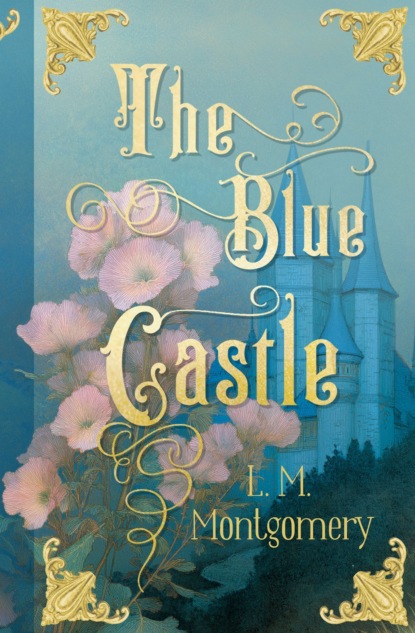

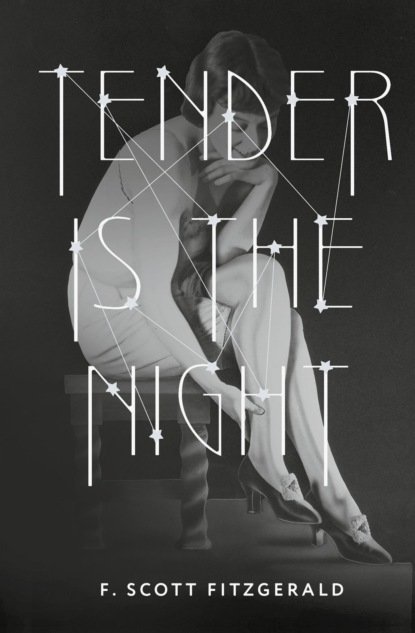
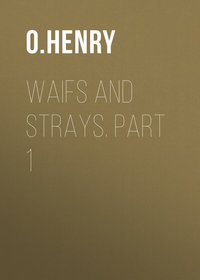


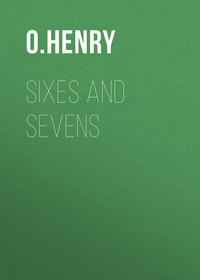



![Heart of the West [Annotated]](/covers_200/25561004.jpg)